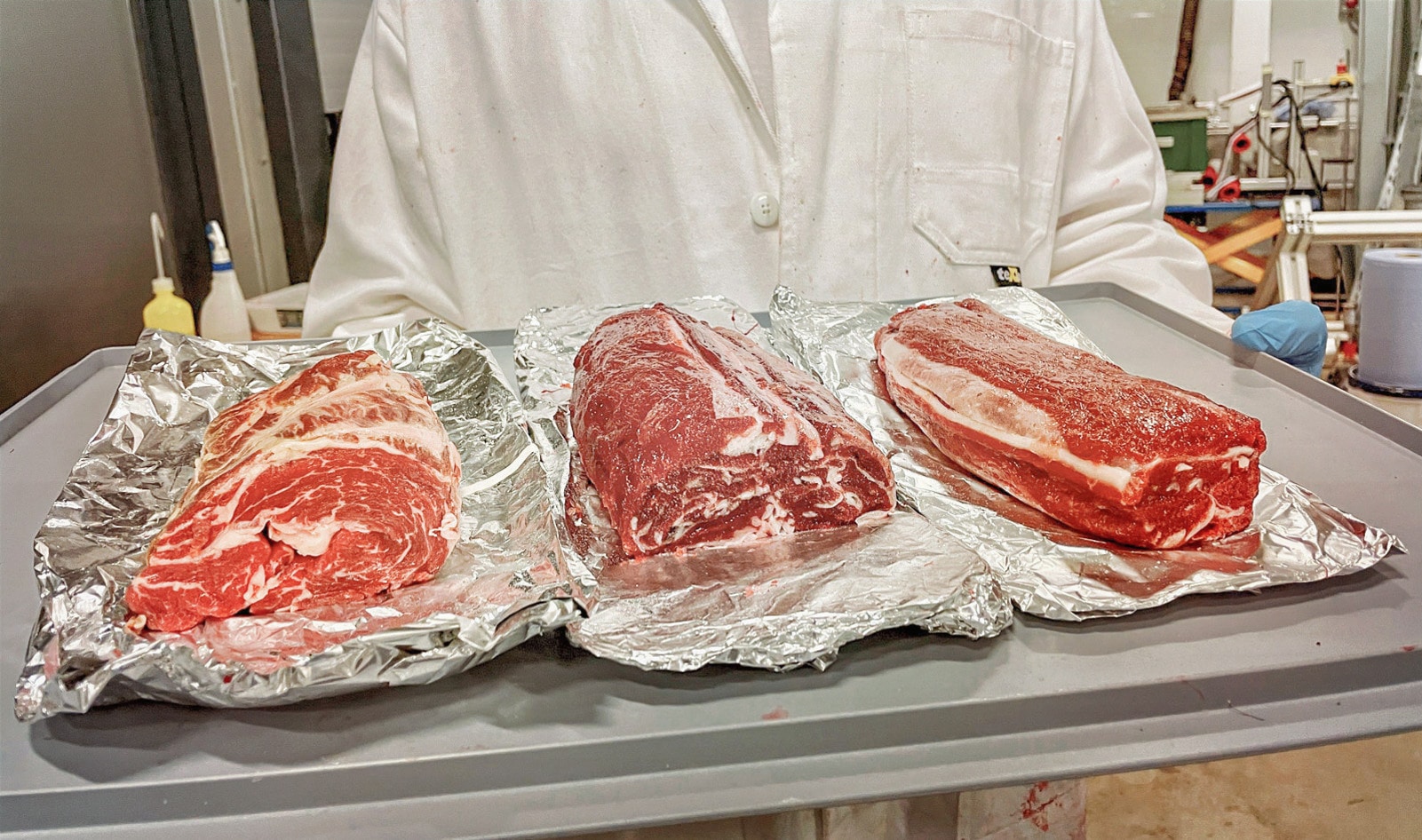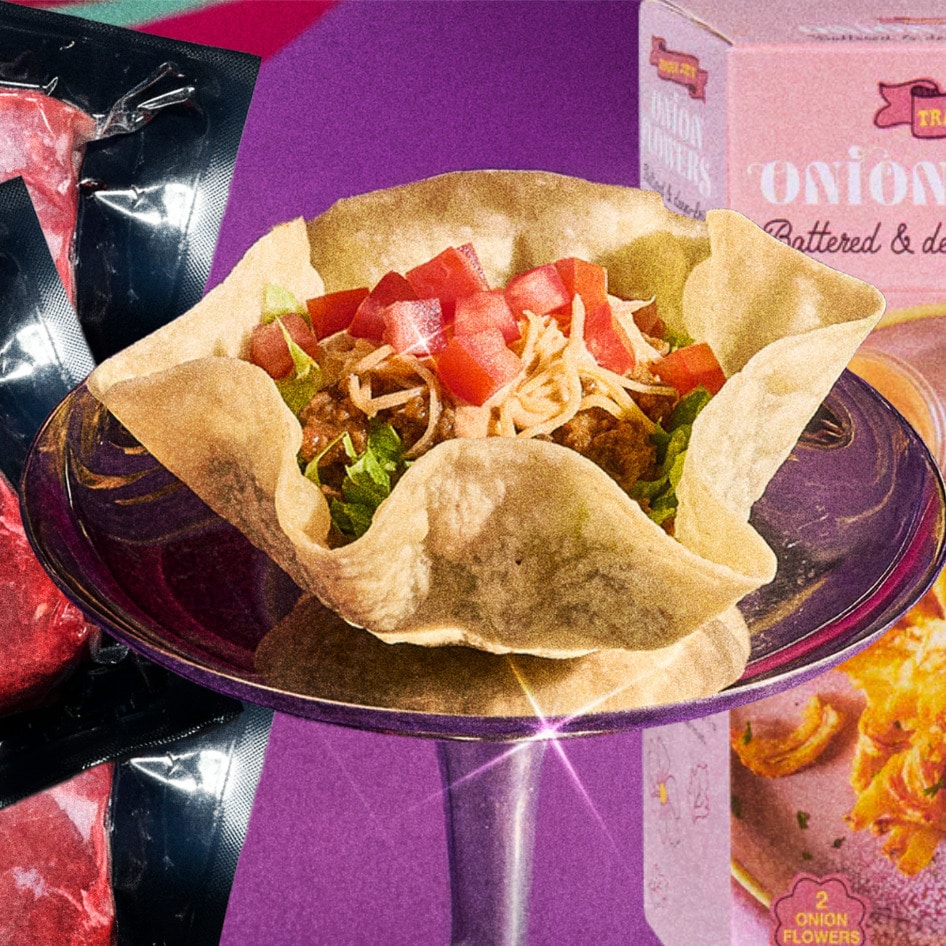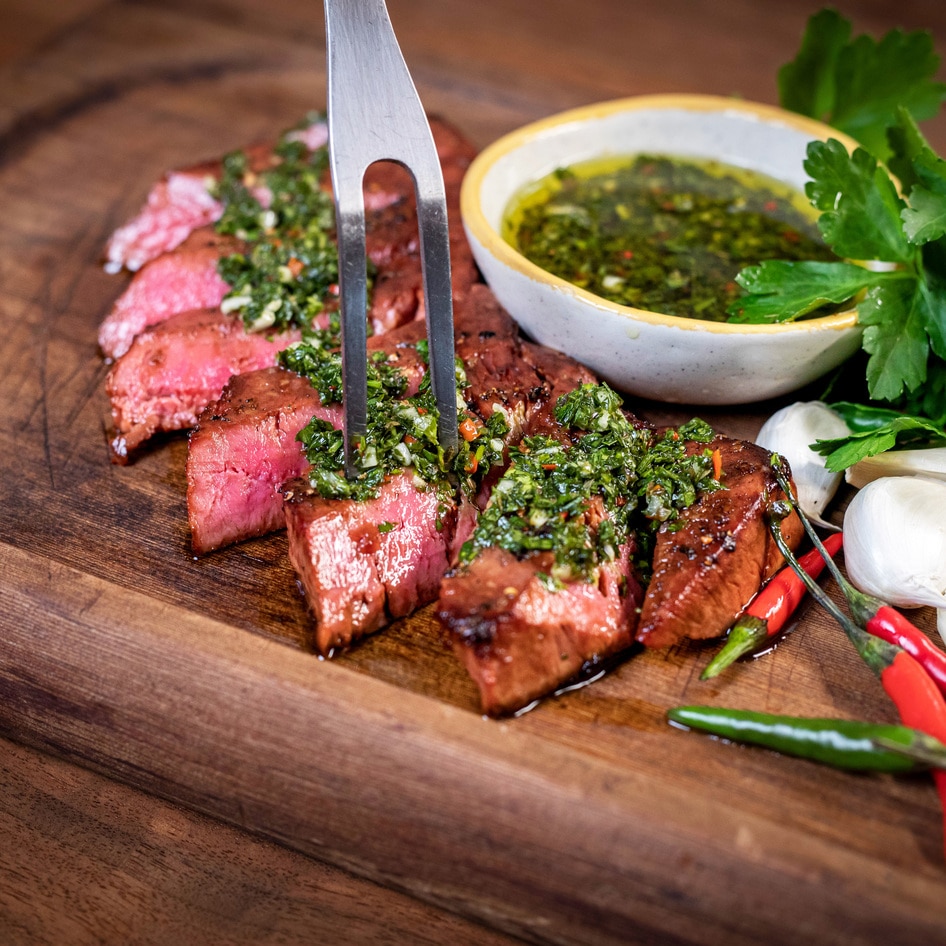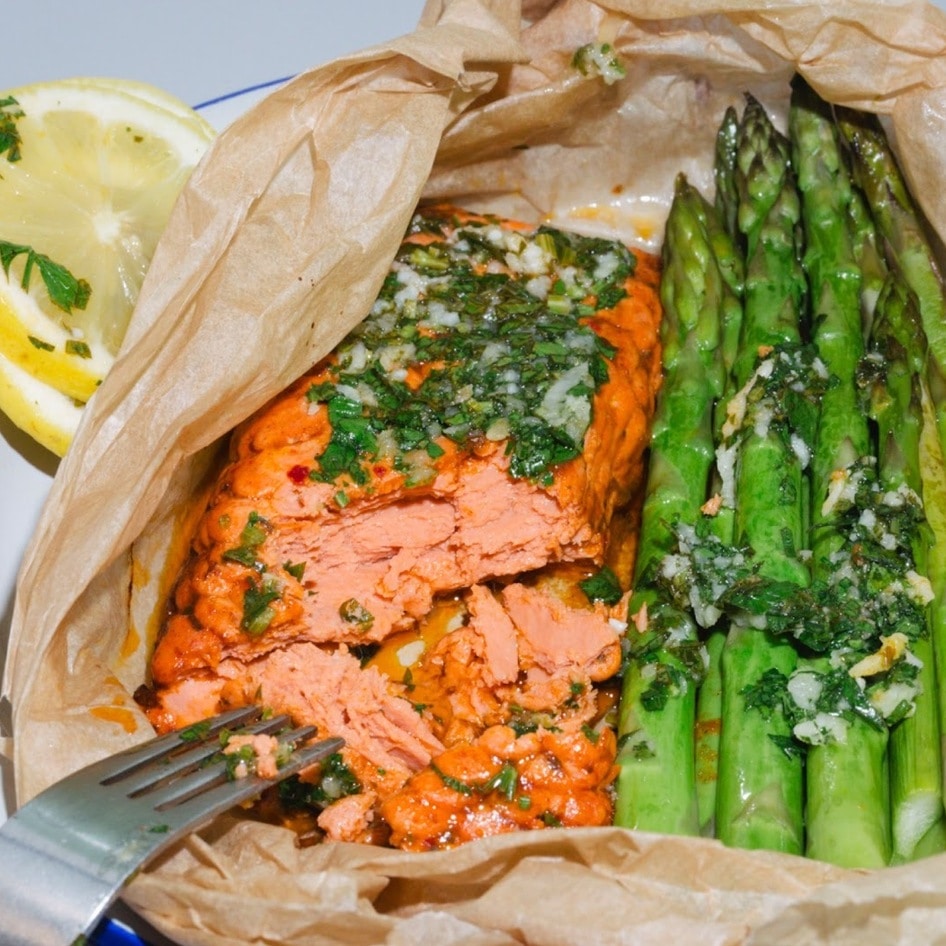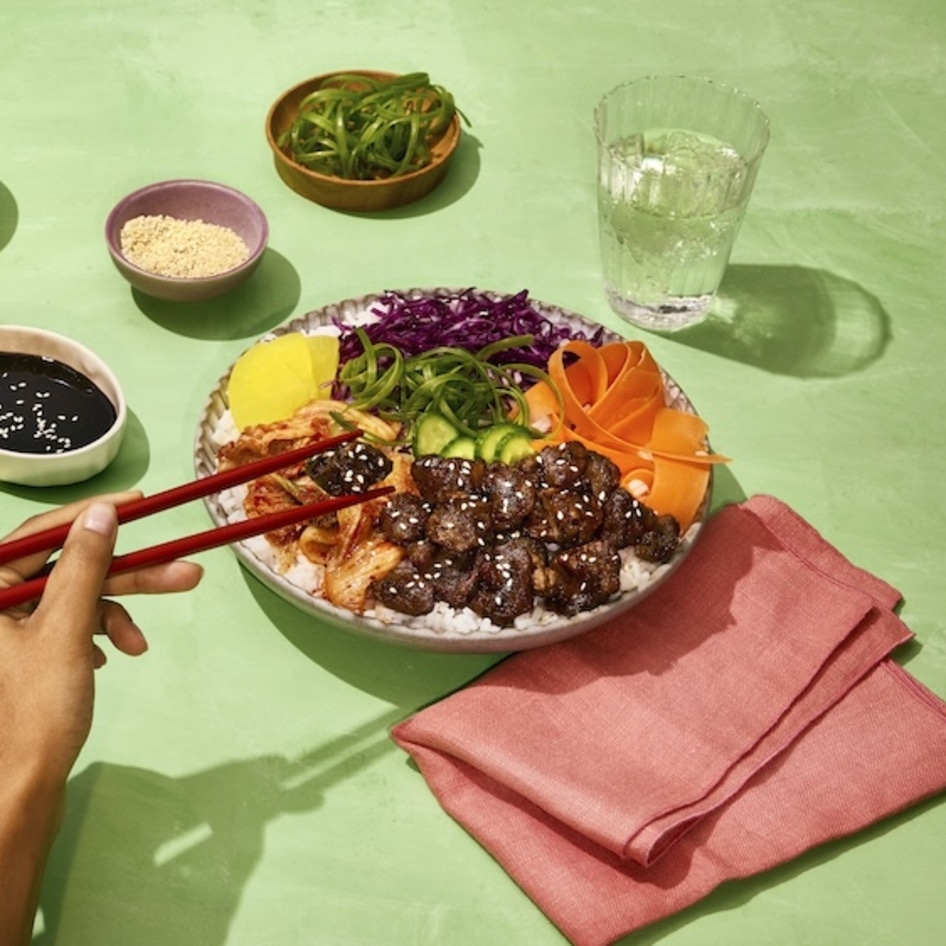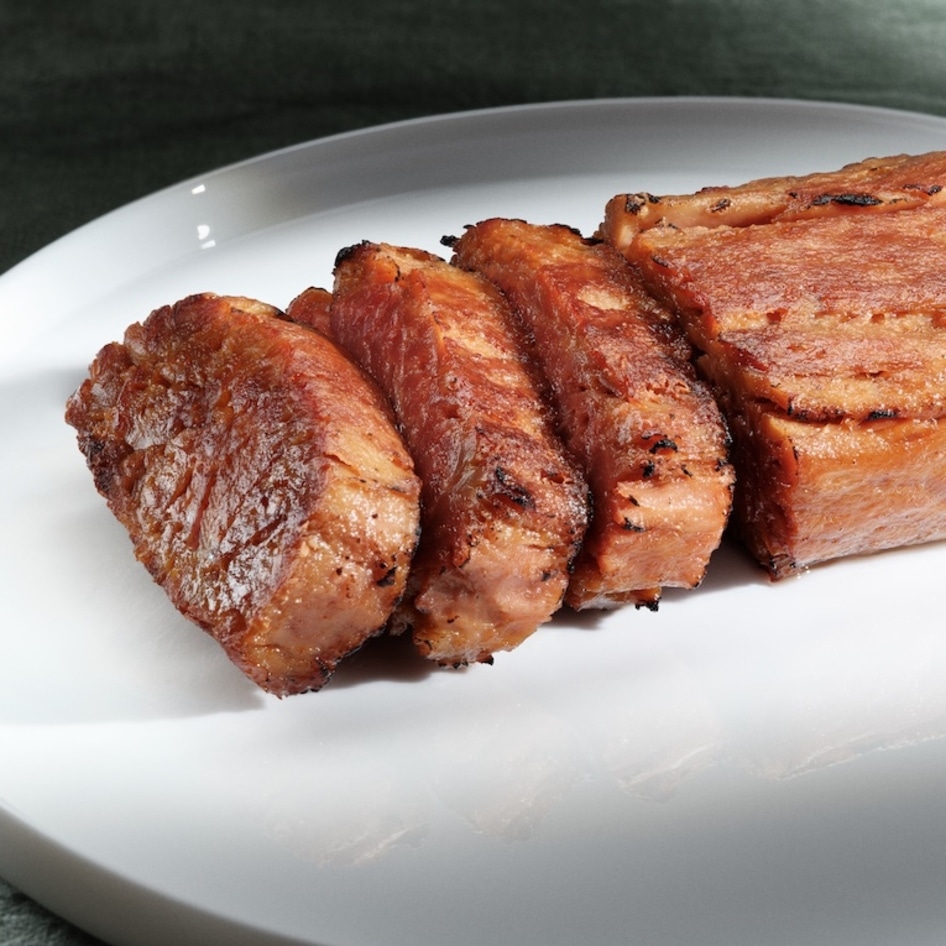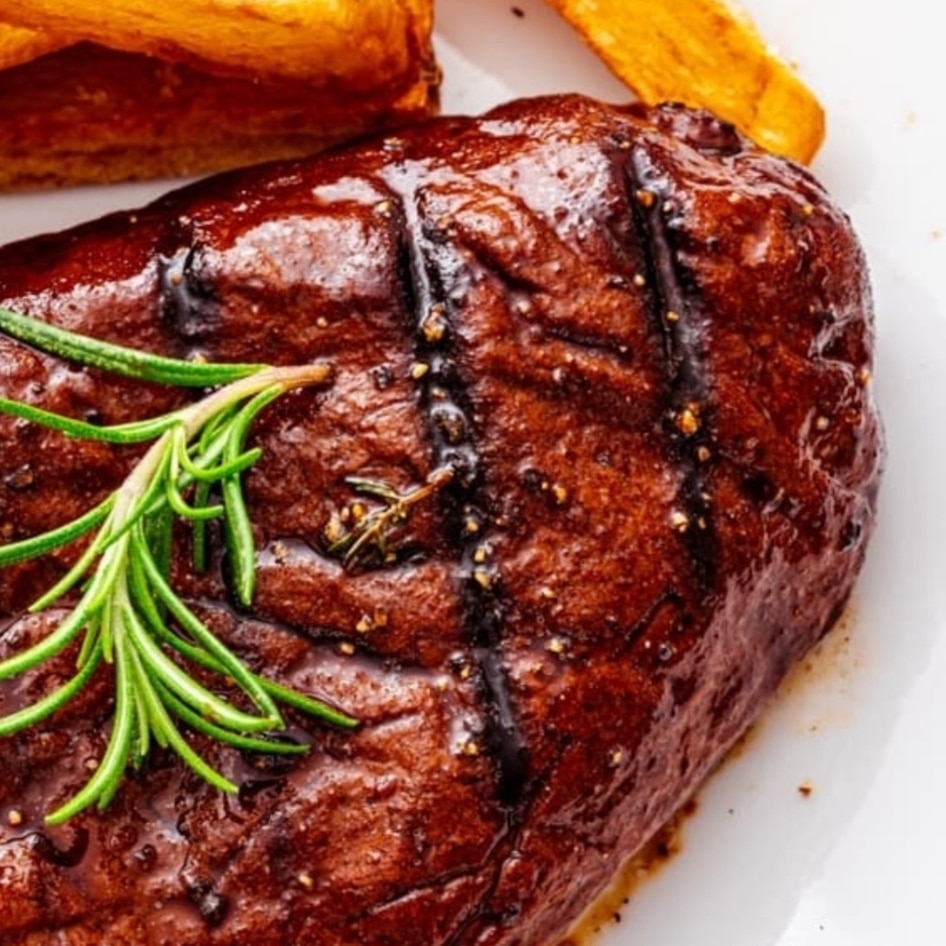Vegan meat has come a long way in the last few years thanks to innovations from companies such as Beyond Meat and Impossible Foods which have cracked the code for realistic burger patties and chicken nuggets. But can plant-based meat ever be completely indistinguishable from the juicy steak cuts meat-eaters love?
One company, Berlin, Germany-based Eaden Project, believes that its technology will close the gap between plant and animal meats for good, allowing for the scalable production of plant-based steak that mimics animals in every way while substantially reducing the carbon footprint of animal agriculture.
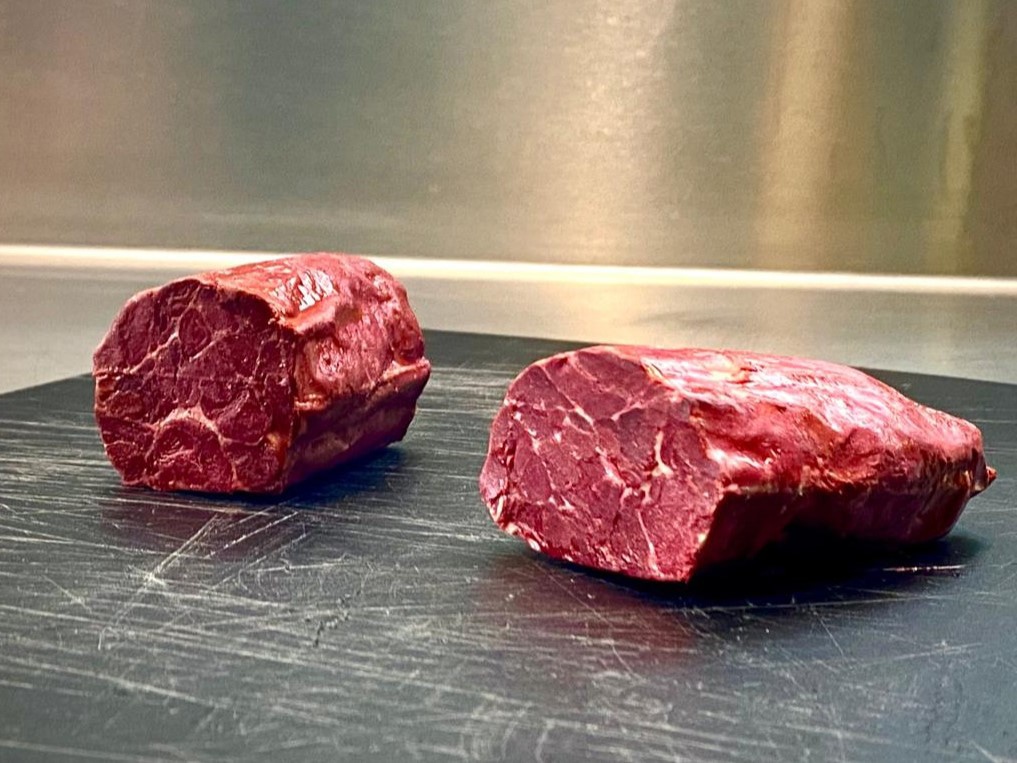 Eaden Project
Eaden Project
“A delicious plant-based steak isn’t only associated with benefits for the consumer market, but also for the planet because livestock are responsible for six percent of all greenhouse gas emissions,” Eaden Project co-founder Hubertus Bessau said in a statement. “The ‘carbon hoofprint’ is just as large as the carbon footprint of the entire global transport sector—road, air, and sea combined.”
The company has figured out a way to use an established fiber-spinning technology—used in the textile, aerospace, and IT industries—to create vegan meat using pea protein that is spun into threads that are just 100 micrometers thick. These protein strands are bundled together with vegetable fat to create a marbled vegan meat that mimics animal muscle.
To create a plant-based alternative for the worst climate offender, the first product Eaden Project has developed is vegan beef steak. Compared to traditionally made beef steak, producing meat in this way slashes land and water use by 95 percent and greenhouse gas emissions by 85 percent.
“Our ultimate goal is to offer consumers a product that eliminates every single reason there is to eat animals,” Project Eaden co-founder Jan Wilmking said in a statement. “We intend to fully recreate and even improve on the sensory profile and the overall pleasure people experience when they eat meat.”
Making vegan steak that mimics animal meat in every way
The technology that Eaden Project is using is not new. In fact, fiber spinning has been used in textile-making for centuries and dates back 5000 years ago to the invention of the hand spindle in Egypt which spun fibers together to create textiles. Over the years, the technology has been optimized across multiple industries and Eaden is breaking new ground by applying it to food products. And using fiber-spinning technology in this way allows for the development of animal-like proteins that can outcompete other methods of meat production.
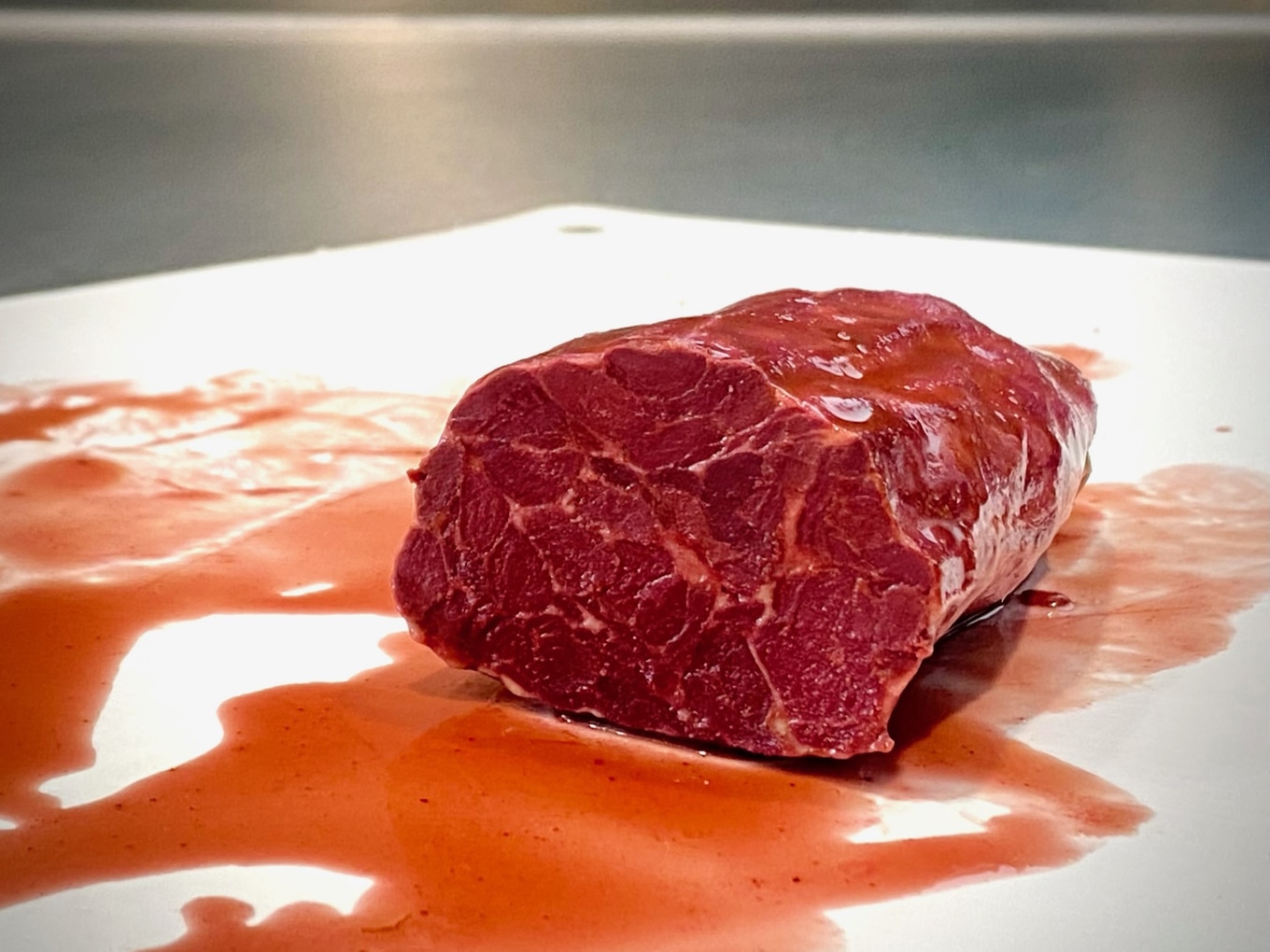 Eaden Project
Eaden Project
Currently, vegan meat is most commonly produced using extrusion, which involves heating a dough of vegetable proteins, oil, and water at high pressure and forming a continuous protein bar that can be further processed into specific products. While this method is scalable, allowing for the quick production of low-cost vegan meat, the products are coarse and elastic, delivering a subpar texture that cannot fully replicate with animal meat.
3D-printing technology is also emerging as a way to produce meat alternatives. Here, some limiting factors are that the technology is currently only suitable for smaller production quantities, a product that is limited in complexity by factors such as nozzle size, and a chewy texture.
Cultivated meat, while the most promising in terms of recreating the sensory qualities of meat, is still in its infancy and must improve on price, energy usage, and scalability before becoming truly competitive with traditionally produced meat.
Eaden’s fiber-spinning technology solves many of the issues associated with extruded, 3D-printed, and cultured meat, producing a scalable vegan meat that is nearly indistinguishable from its animal counterpart with iron, umami, and acid notes. It does this by producing continuous fibers that can be structured on a micrometer scale and arranged so that marbling and texture can be programmed precisely.
 Eaden Project
Eaden Project
And the result is a convincing vegan steak that is nearly indistinguishable from its animal counterpart, as showcased in the photograph above. Can you tell which loins are vegan? Hint: the two on the right were created by Eaden Project.
“Both plant and muscle fibers are versatile building blocks with fascinating material properties, which is why so many of today’s high-tech materials are natural fiber-inspired,” David Schmelzeisen, PhD, Eaden Project co-founder and materials scientist, said in a statement.
“For example, we use carbon fiber for rockets and satellites, and biomaterial-based implants for humans,” Schmelzeisen said. “Now, for the first time, we’re replicating meat, fiber by fiber, using proven and easily scalable textile industry technologies.”
To date, Eaden Project has raised €10.1 million ($10.9 million) and assembled a team of issue engineers, food technologists, material scientists, and culinary professionals to support the development of its plant-based meats. It intends to launch its hyper-realistic vegan beef steak sometime this year.
Vegan steak comes for center of the plate
Eaden Project is not the only company looking to create realistic steak without exploiting animals. Another European company, Slovenia-based Juicy Marbles, also creates its vegan meats using a proprietary technology that layerer soy proteins into linear fibers. The company has thus far released filet mignon and 1.5-pound tenderloins that it hopes will completely redefine meat as a source-agnostic protein.
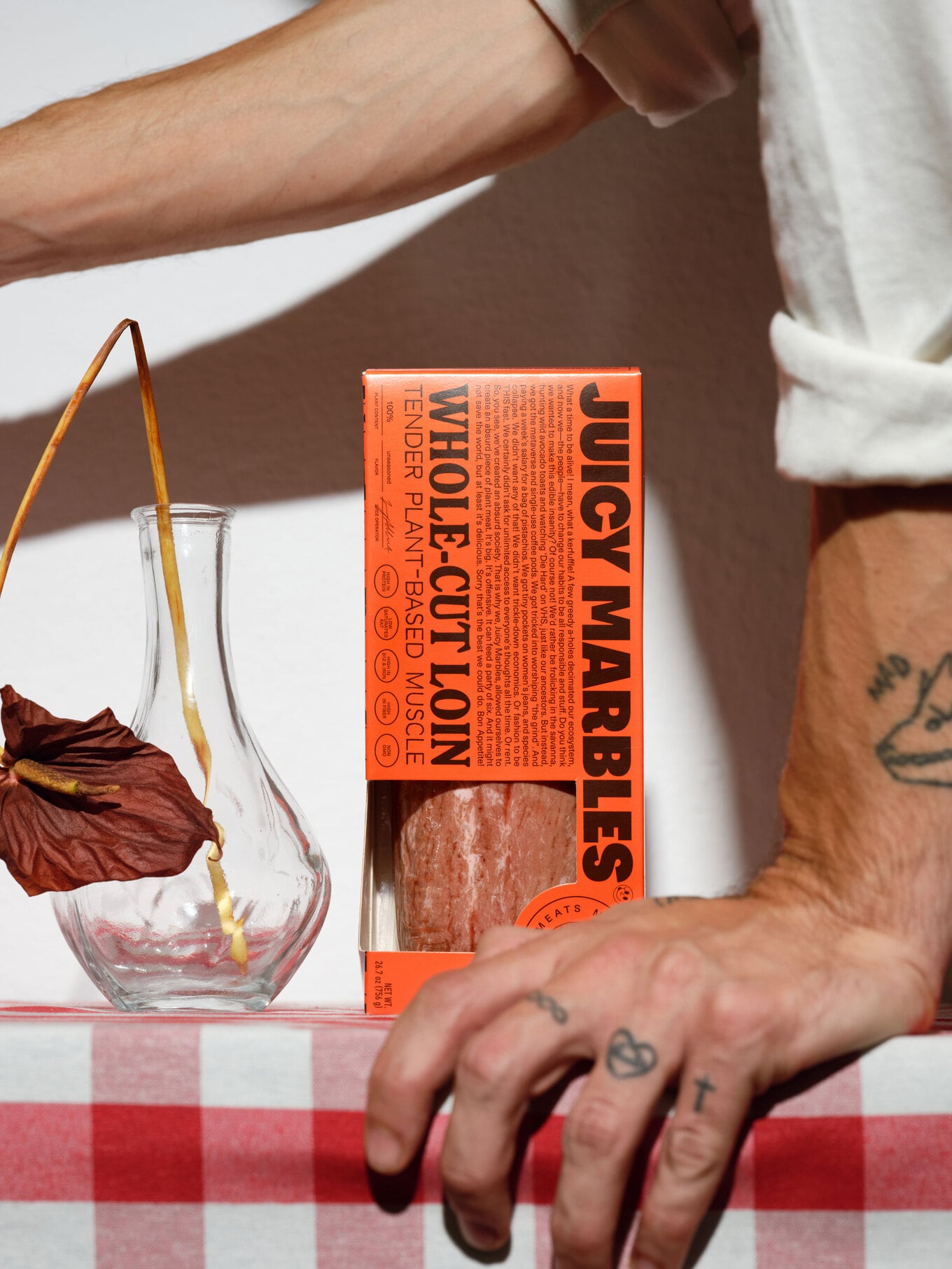 Juicy Marbles
Juicy Marbles
“A lofty dream I have is that people will stop comparing plant-based meats versus animal meats, and just start seeing ‘meats’ as a broader category of food, recognizable for its sensory experience, not the source of protein,” Juicy Marbles co-founder Vladimir Mićković told VegNews in November. “Before just recently, we could only choose meat that is pig-based, cow-based, chicken-based, etc. … but in the last 10 years, our choices have broadened, and I think that makes now a great time for food.”
Launched in 2020, Juicy Marbles currently distributes its whole-cut vegan steaks in Europe and the United States through its website, with plans to expand into foodservice.
For the latest vegan news, read:
JUMP TO ... Latest News | Recipes | Guides | Health | Subscribe

